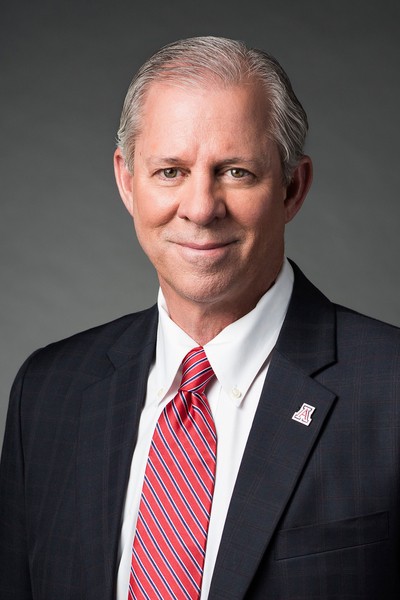UPDATE: President Dr. Robert C. Robbins has since released a statement regarding the incident.
Native American students at the University of Arizona are speaking out and demanding accountability from President Dr. Robert C. Robbins after he made comments that offended members of the Native Students Outreach, Access and Resiliency group, or SOAR.
According to the letter, which was published on SOAR’s Instagram and Facebook pages on Nov. 3, 17 members of SOAR were gathered outside of Old Main for a class on Oct. 3. Robbins joined the students and in what the letter described as a “failed attempt to connect and relate to the group” remarked about his own ancestry.
Starting by saying that he did not want to “pull an Elizabeth Warren,” Robbins told the students that he had taken a DNA test to see if he really had Cherokee ancestry and the test came back negative. He then told them that he was planning to take another test to double check his ancestry “because of his ‘very high cheekbones,’” according to the letter.
Two weeks later, on Oct. 15 at the president’s office hours, two students who had been there for Robbins’ comments told him how much of a negative impact the incident had on the SOAR students. According to the letter, Robbins apologized, but any subsequent attempts by students to have Robbins apologize in person to SOAR were met with bureaucratic apathy from the President’s Office, despite Robbins initially expressing a desire to do so.
The letter continued on, stating that these “macroaggressions” from the university president are unacceptable and have a negative impact on the Native American students, faculty and staff on campus. Despite the university’s commitment to diversity and inclusion, these comments reflect the larger issue of systemic racism on campus, the letter alleged.
“As a land-grant institution, which rests on the ancestral homelands of the Tohono O’odham people and claims to be committed to diversity, we MUST do better,” the letter states.
The authors of the letter, who identify themselves as Voices of Indigenous Concerns in Education, demand that action be taken in response to the incident. Among the demands are that Robbins apologize in person to SOAR and ideally the Native American community on campus; that the university develop sustainable systems for receiving and acting on input from the community; that Robbins and his Senior Leadership Team develop a position within the team whose purpose is to represent the needs of Native American students and community members; that more people from marginalized communities are included in senior leadership; and that Robbins aid in the development of programs designed to support Indigenous students.
This is not the first time this year the university’s administration has come under criticism by groups of marginalized students.
Since the beginning of the school year, the Queers United Coalition has been calling for Dr. Randal Dull to be fired due to a homophobic letter he wrote to a college newspaper in 2004. Robbins’ hiring of his longtime colleague Dr. Michael Dake to run UA Health Sciences despite warnings that Dr. Dake was not qualified also sparked criticism.
In September, the alleged racially-motivated assault of a black student by two white students also caused students to call for accountability from the administration and the University of Arizona Police Department. The university was criticized for its initial handling of the alleged assault after the students were at first sent to the UA Diversion program. Hundreds of students participated in a protest demanding justice. The alleged assailants have since been arrested and reportedly suspended.
Last semester’s incident between three UA students and Customs and Border Patrol agents on campus lead to weeks of protest and international attention on the university. Afterwards, UA held one Campus Conversation meeting, which Robbins attended.*
UPDATE: Robbins released a statement on Nov. 4 regarding the incident which read as follows:
“I want to extend my sincere apology for my comments made during a SOAR class in early October and their impact. Today [Nov. 4], I met with two Native student leaders and it was humbling to hear their perspectives and concerns. I learned a great deal about the impact of my words and want to learn more. Tomorrow [Nov. 5], I will be meeting with all of the students who are in the SOAR class to convey my belated apology for my comments and express that I value their presence on our campus and the contributions each of these students make to our academic community. I want each and every student to feel included and supported. I look forward to learning from and partnering with our students on these important issues.”
The Daily Wildcat will continue to update this story as the situation develops.
*Editor’s Note: A previous version of this article failed to acknowledge a Facilitated Campus Conversation held in October. Another conversation is planned for tomorrow, Nov. 5 and is currently full.
Follow Vanessa Ontiveros on Twitter









